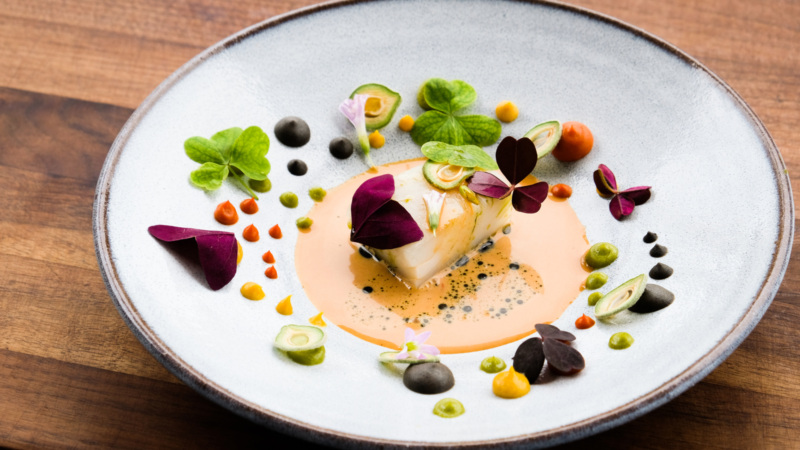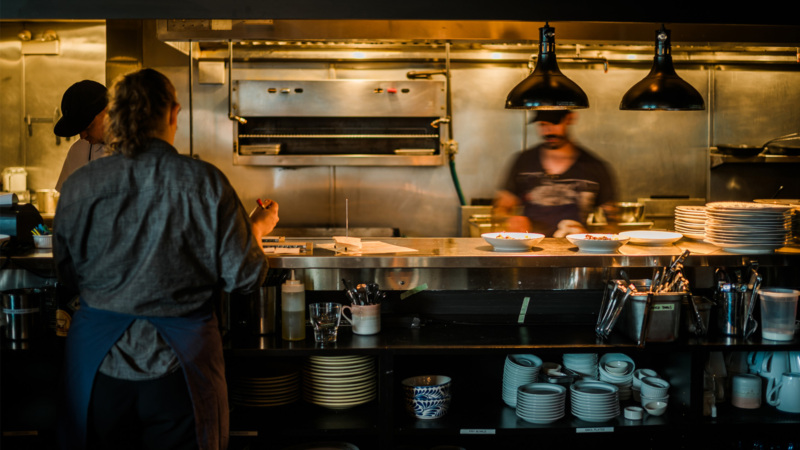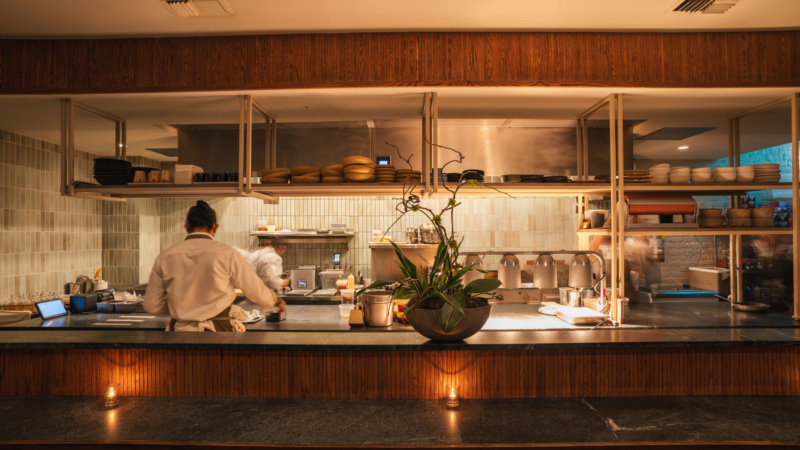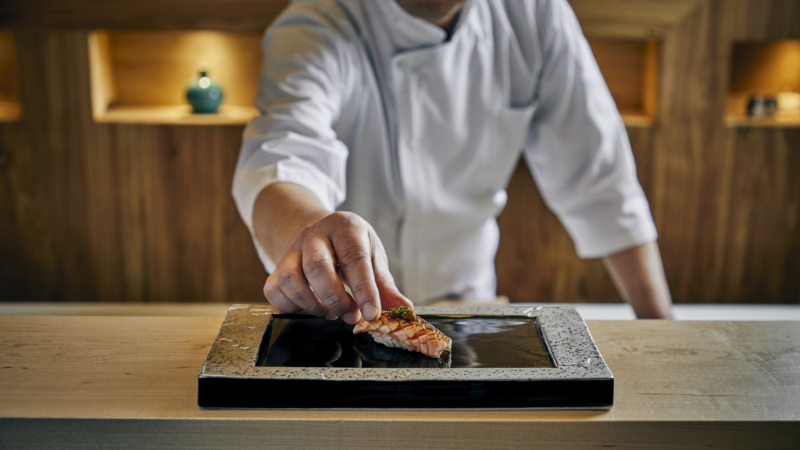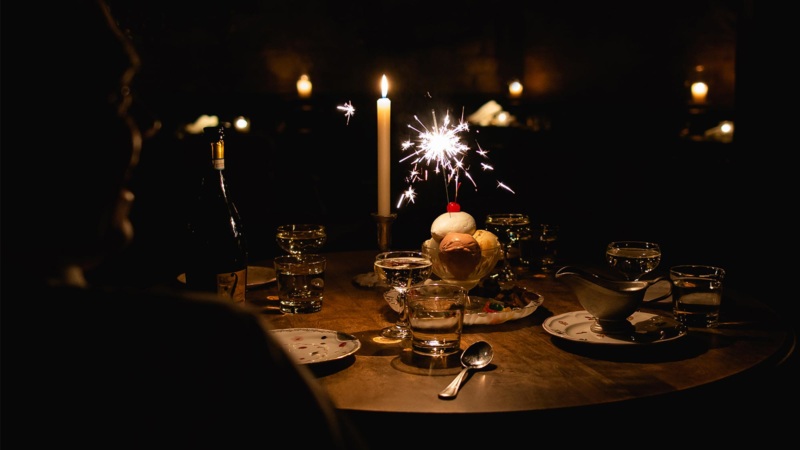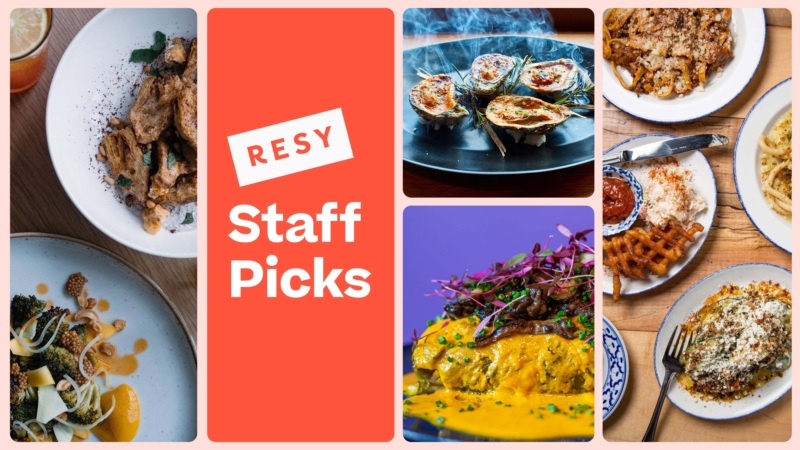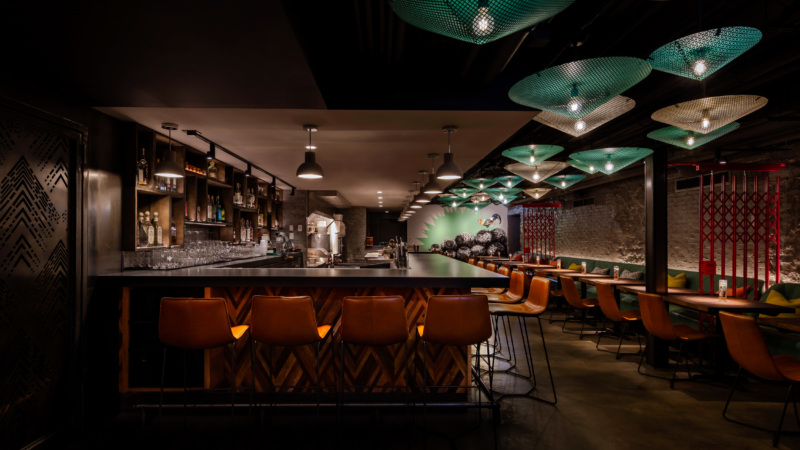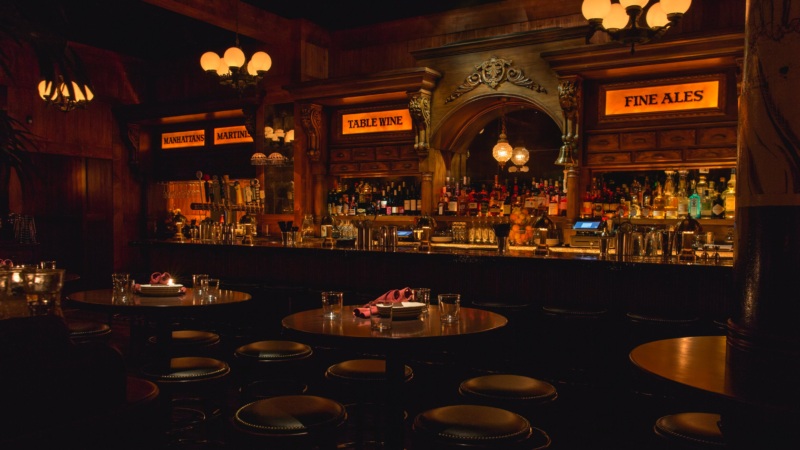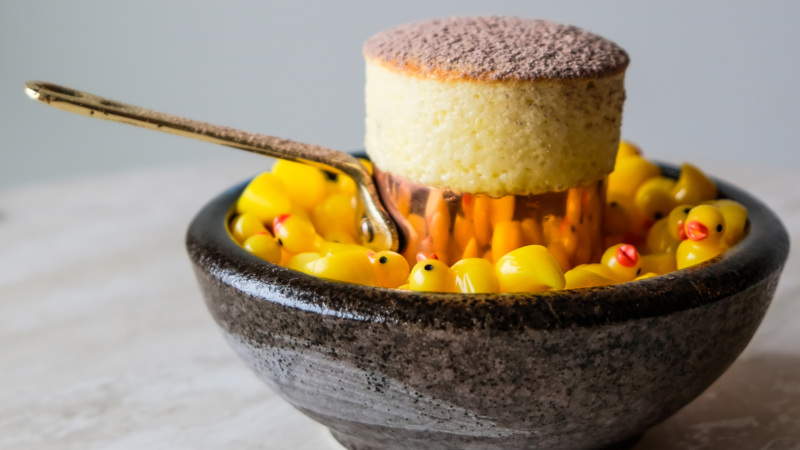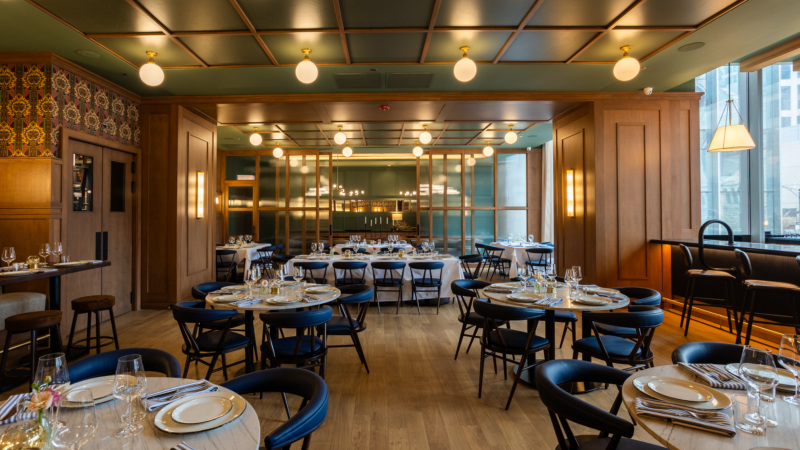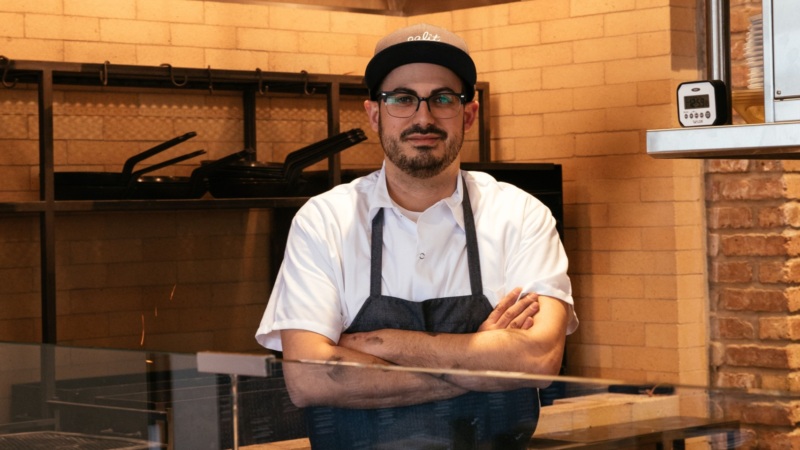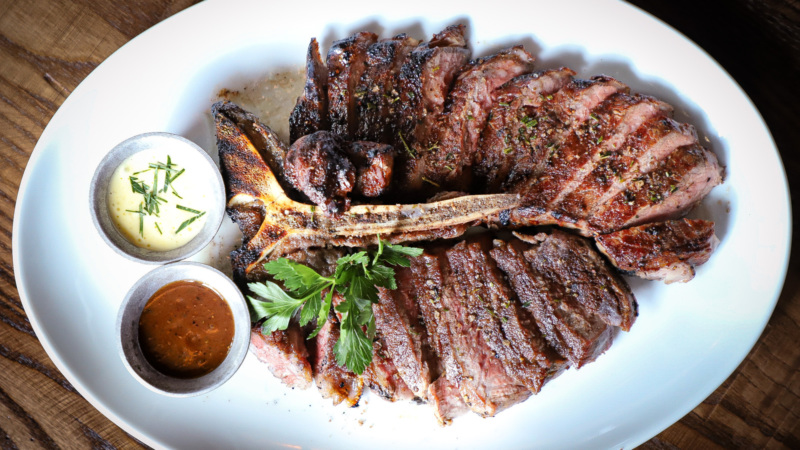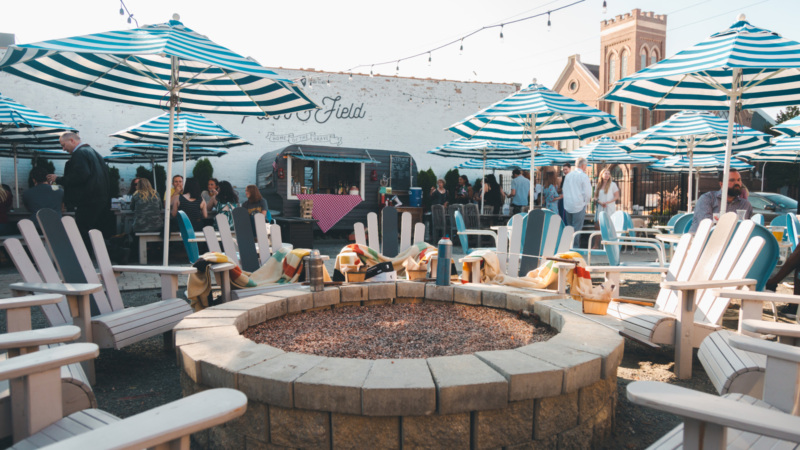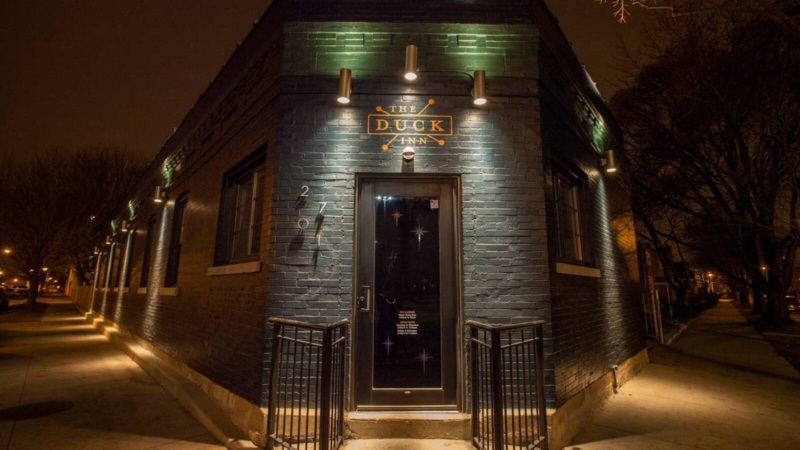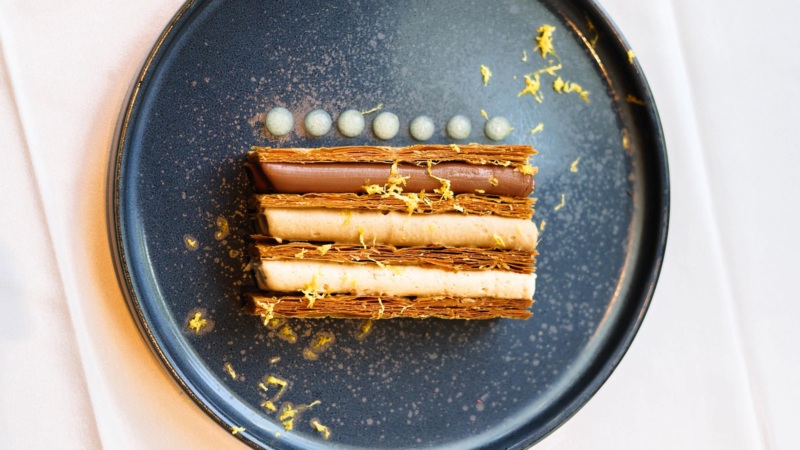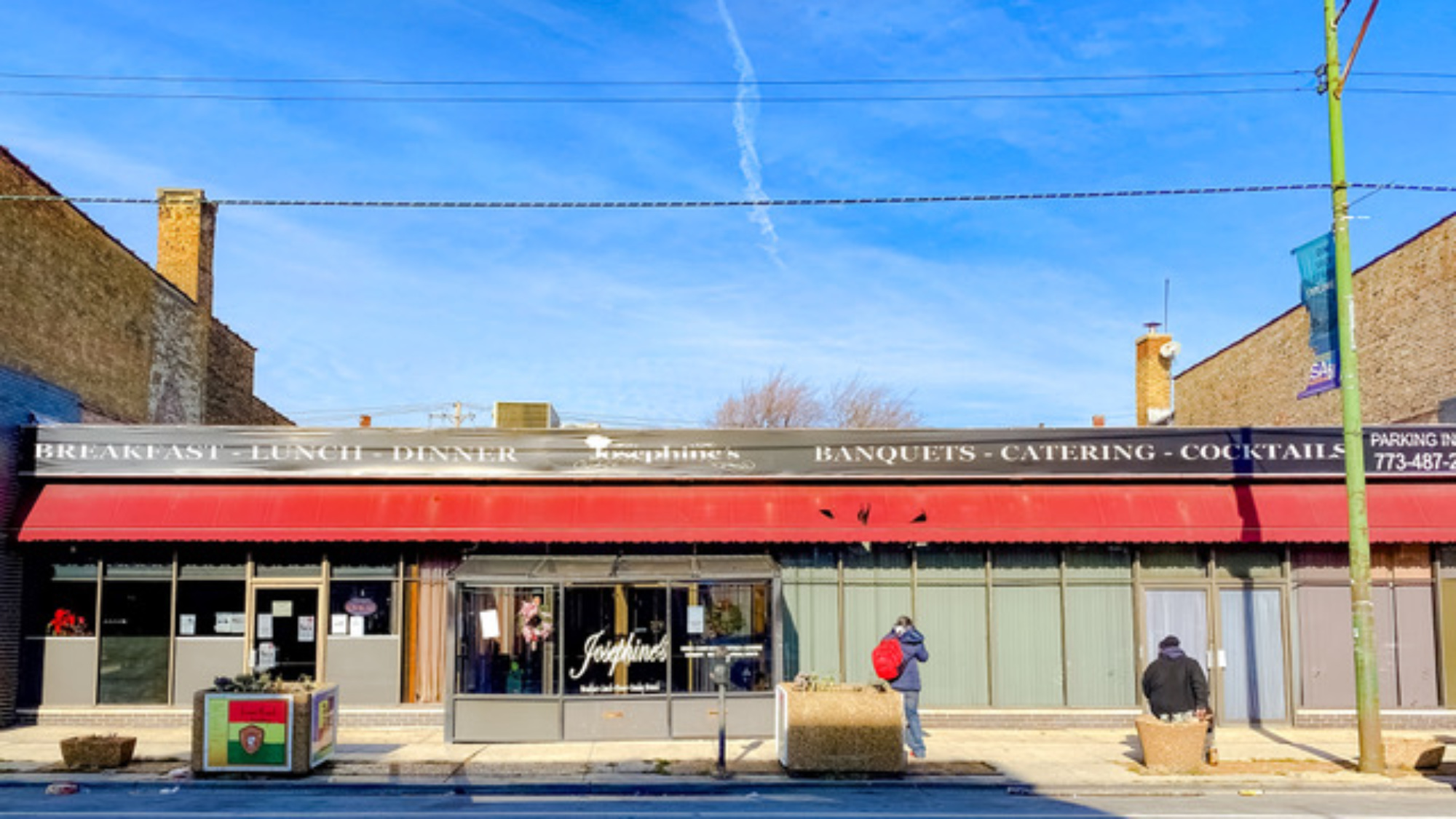
On Chicago’s South Side, Josephine’s Preserves the Lineage of Soul Food
To own a restaurant is a labor of love. To own a soul food restaurant for 35 years, as Josephine Wade has, is to be of service to people in a manner that extends beyond the bounds of hospitality.
- Original Soul Vegetarian: Proof That Divine Culinary Inspiration Can Grow on Trees
- Darnell Reed Was a Talented Chef. The Pandemic Made Him a Skilled Baker, Too.
- Tear Down the Restaurant Industry? Virtue’s Erick Williams Would Rather Lead By Building From Within
- Sylvia’s in Harlem Still Stands For Community
- Remembering Atlanta’s Bygone Black-Owned Restaurants
- Black-Owned Restaurants Shaped Atlanta. Now, Their Survival Is More Important Than Ever.
- For Atlanta, Paschal’s Serves as a Monument to History — and Hope
- The Layered Legacy of Roscoe’s House of Chicken & Waffles
- Soul Survivor: The Story of the World’s Oldest Soul Food Restaurant
Such restaurateurs are tasked with extolling soul food’s capacity not only as a cuisine, but also as a practice deeply rooted in heritage, civil rights, and Black empowerment. It is a lineage passed down to people like Wade, the founder and co-owner of Josephine’s Southern Cooking on Chicago’s South Side, who purposefully built her restaurant as a beacon for Black Chicagoans. It’s been a base for community organizing, a launchpad for political movements, and a venue for countless fundraisers for young people — all achieved over a hot plate of Wade’s down-home cooking of pan-fried liver and onions, tender short ribs, and filets of golden fried catfish. And so it makes sense that this matriarch, whose stewardship and comfort food has touched four generations of Chicagoans, was bestowed the name “Mother Wade” for which she’s known near and far.
***
Wade opened her restaurant in 1986, originally named Captain’s Hard Times after her husband Rupert Smith’s nickname, “Captain.” At the time, Harold Washington, Chicago’s first Black mayor, was in office; Wade actually helped to get him elected. The Chicago Bears were Super Bowl champions; and a well-received TV program named The Oprah Winfrey Show had just premiered, with its studios in Chicago.
These were the winds upon which Captain’s sailed when it opened on 79th Street in the South Side’s Chatham neighborhood. The city’s soul food landscape was rich with now-gone stalwarts — Army and Lou’s, Gladys’ Luncheonette, and Izola’s, to name a few — that had been knitted into the fabric of the South Side and Black culture since the 1940s and 1950s, essentially blueprints for a wave of soul food eateries nationwide.
By the time Wade opened Captain’s Hard Times, she was already an experienced cook and restaurateur who’d previously owned restaurants in Chicago. An Arkansas native, Wade learned to cook from her grandmother, telling the Chicago Tribune: “Soul food is a [B]lack cultural tradition passed from generation to generation. I don’t think my grandmother even had recipes. Everything now is rush, rush, rush, but it didn’t used to be that way. We still try to do things slow, like she did.”
Even today, Wade’s cooking is slow cooking, an ever greater contrast to the fast food chains located just one block over. Wade remains a prominent figure at Josephine’s and the food continues to be made to order, which means, yes, patience is a virtue. And Wade doesn’t hesitate to remind those sitting at their tables with growing anticipation, that her chicken and waffles, her meatloaf, her collard greens, and her mac-and-cheese all take time.
***
Over the decades, Captain’s Hard Times ushered in the next generation. As Wade recalled in a recent interview, her lines were “out the door” for years, but restaurants fortunate to operate for several decades must undoubtedly weather many storms. Just a few years ago, Wade, while starring down a fate similar to that of her contemporaries, announced that because of ongoing dips in business, she was nearing a permanent closure. Yet the saving graces of a televised remodel and the supportive Chatham community that showed up in droves gave Wade’s diner the boost it needed to stay open. But all of that happened before COVID-19 hit.
Now with limited seating offered in accordance with Chicago’s COVID-restrictions, breakfast, lunch, and dinner is once again served onsite every day, but the truly coveted daily special is the wealth of conversation amongst neighborhood folks and regulars who have come to rely on Wade’s place as a hub for information-sharing and fellowship.
Celebrity culture and soul food restaurants have long maintained a special relationship, whether because famous figures seek out popular eateries and soul food spots often fit the bill or because, for Black celebrities in particular, Black-owned establishments can be a homecoming and a welcoming space that feels and tastes familiar.
Aretha Franklin was a regular whenever in town, telling the Chicago Defender that her favorite restaurants in Chicago were Josephine’s and its Chatham neighbor, Lem’s BBQ. Franklin even boldly declared Wade’s to have “the best gumbo in the world.” When Franklin’s performance schedule kept her away from her favorite booth, Wade would personally deliver a batch of that gumbo to the singer backstage; she did so up until one of Franklin’s final performances.
But the archives of Black artists, activists, and politicians prominently displayed on the walls of Wade’s dining room aren’t there solely for bragging rights. No, they’re proudly mounted as a testimony to remind those who enter — particularly the youth she hires for job training every summer — that they are descendants of greatness.
But also, Wade wants to ensure we’ll remember the contributions of these individuals — the world-famous and the locally beloved. She’s preserving our history.
***
Legacy has unquestionably been top of mind for Wade’s son and co-owner, Victor Love. Like many second-generation operators, Love took a detour professionally, owning a dry cleaning business for many years before eventually coming back to the family business to work alongside his mother.
Unbeknownst to Wade, Love campaigned for the city to rename a street in her honor; and in 2017, on Chicago’s 180th birthday and just days before Wade’s 75th birthday, 79th Street and Vernon was unveiled as Mother Josephine Wade Way.
Keeping this family-owned restaurant buoyant and relevant in an ever-changing neighborhood and in a city with a highly competitive food scene is no easy task, and it’s only made been harder by the pandemic. Yet Wade and Love’s continued devotion to community is a constant.
Since the early days of the pandemic, they’ve been delivering thousands of complimentary meals to seniors who live on the South Side and the bordering south suburbs. In 2019, the popular Food Network show Restaurant: Impossible gave the almost four-decades-old diner a much needed renovation. It was Love’s idea to change the name of the restaurant in honor of his mother. And even though the name change took effect years prior, one wouldn’t necessarily know it since the original and sizable Captain’s signage stuck around until the update was complete when “Josephine’s” in whips of white script became a fixture.
The newly remodeled dining room at Josephine’s largely sits empty today, like every other Chicago restaurant. Josephine’s is still open for carryout and delivery. I stopped in to grab my catfish dinner order one Sunday afternoon, waving to Mother Wade and smiling underneath my mask as I passed by. Fork-ready back at home, I opened my bag and found an unexpected bonus: a tin-foil wrapped bundle of cornbread muffins. Of course meals come with cornbread. Made with yellow cornmeal, and sweet just like my grandma’s, it was the first thing I dug into. As luck would have it, that cornbread was the only thing that my very particular-eating two-year-old had been even remotely interested in eating that entire afternoon. He gobbled up the whole muffin, and just like that, Mother Wade had nourished yet another generation.
Josephine’s Southern Cooking: 436 E 79th St., Chicago. Open for carryout and delivery.

